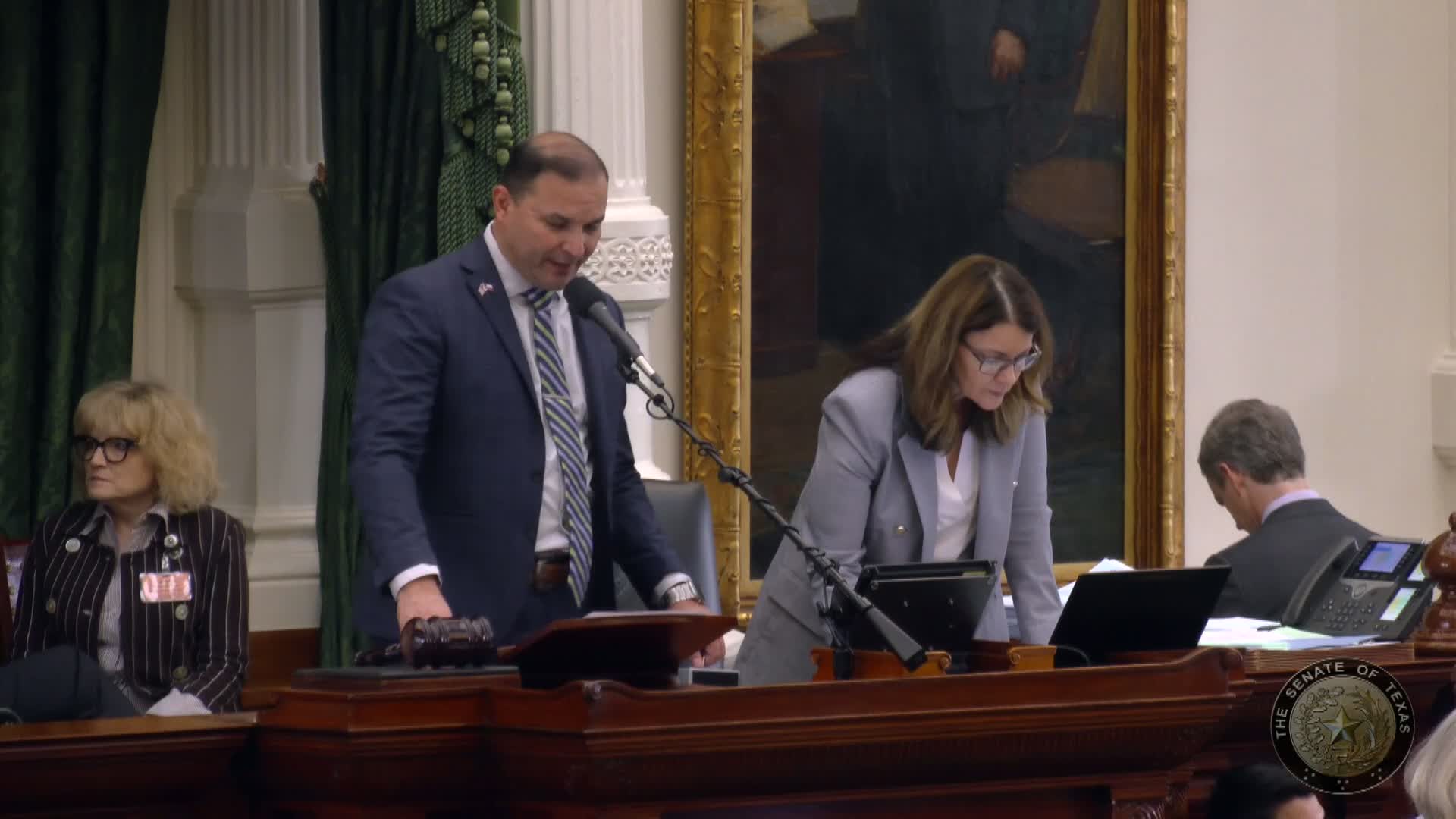Article not found
This article is no longer available. But don't worry—we've gathered other articles that discuss the same topic.

Senate approves ban on surveillance, intimidation and misuse of confidential data by state contractors
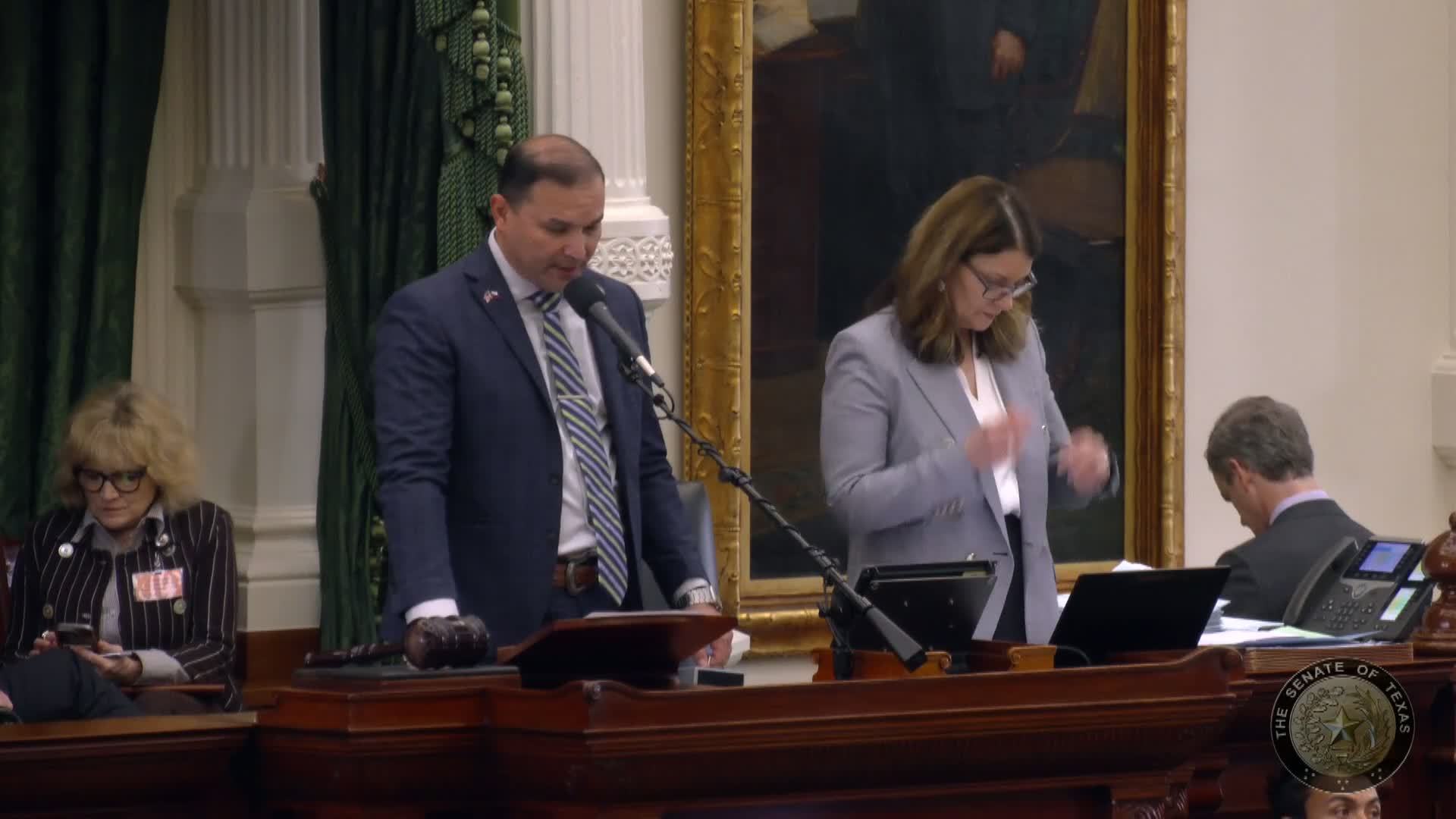
Senate modernizes notice rules for law‑enforcement custody of unclaimed property
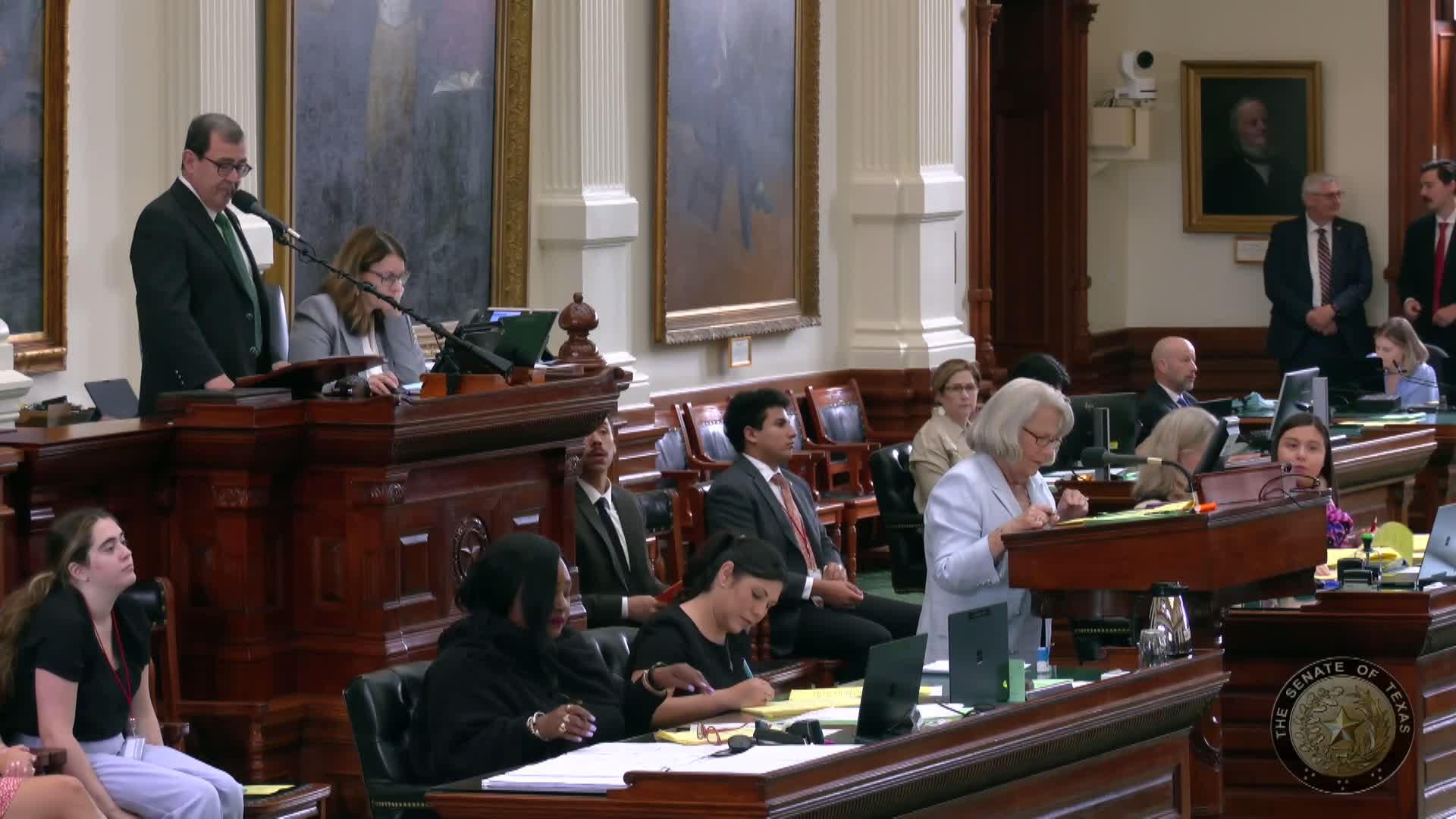
Senate adopts Sunset Commission recommendations for Trinity River Authority
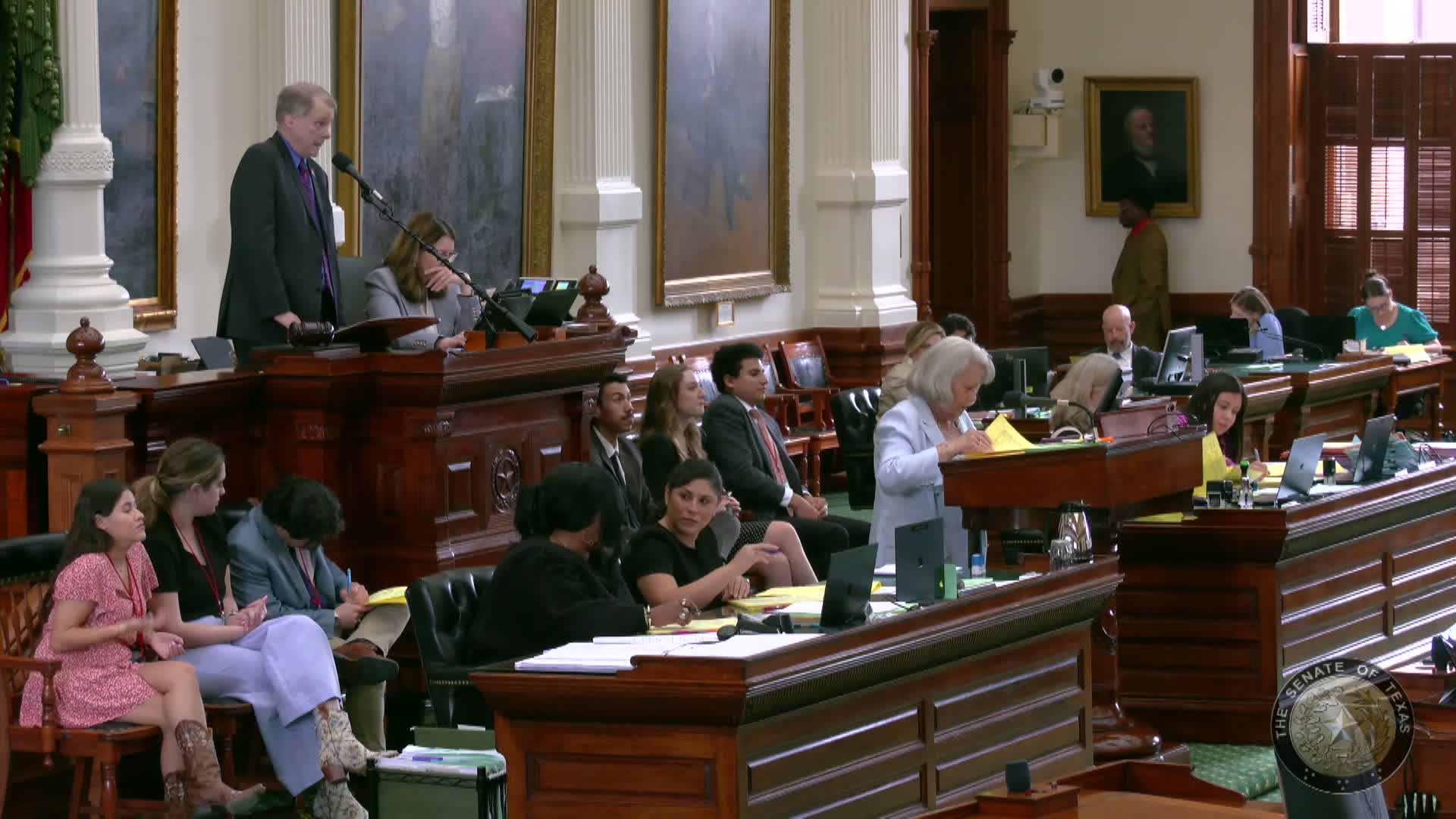
Senate raises penalties for reckless driving, creating new felony tiers
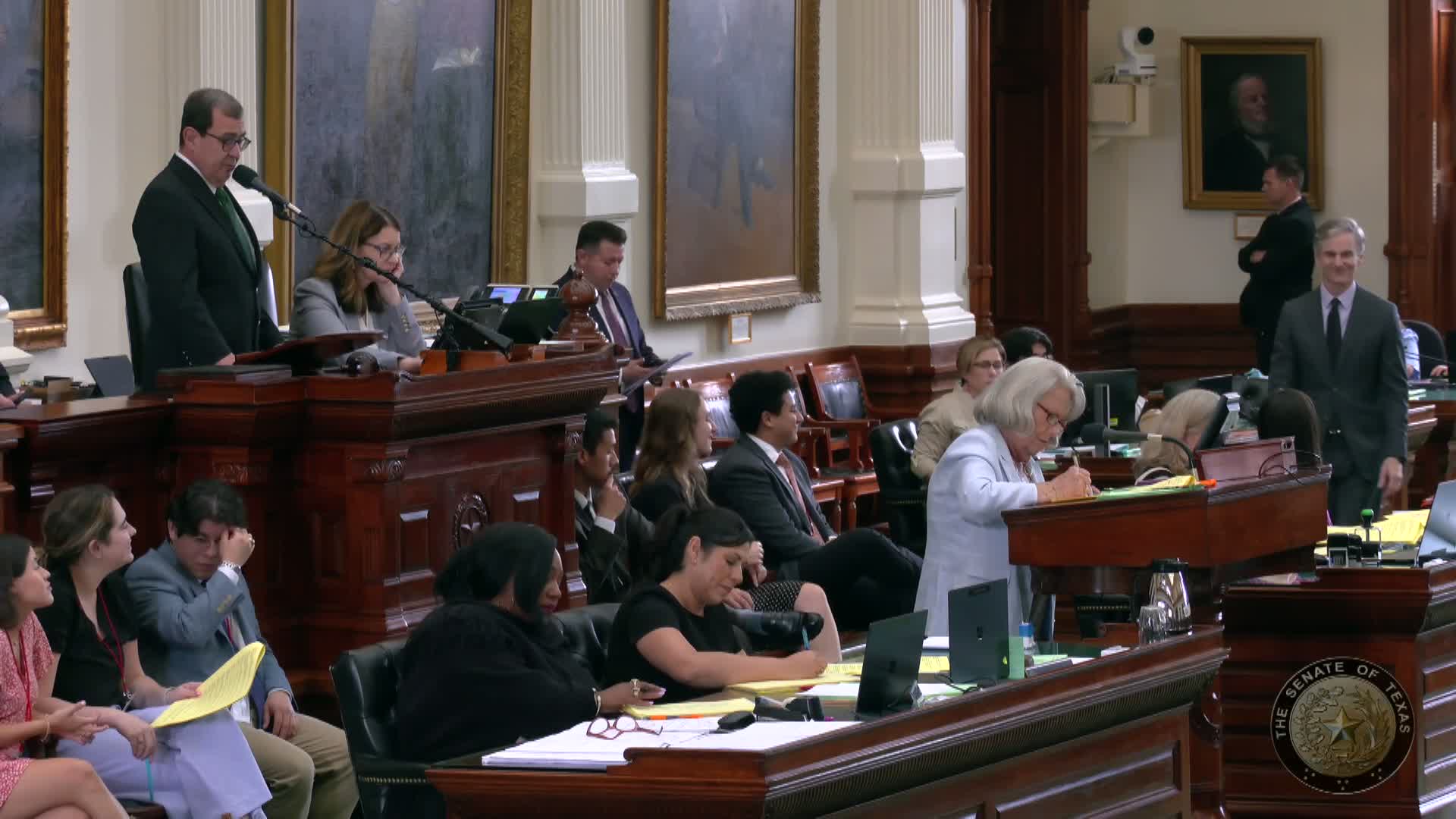
Senate creates Health Professions Workforce Coordinating Council; measure passes over opposition
